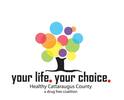Media Literacy |
|
|
|
What is Media Literacy and why is it important?
Having easy access to information over the Internet exposes us to a lot of information on a daily basis. Sometimes it is hard to know if the information you do see is real or not. Being able to sort out what is “fake news” and what is real by using critical thinking skills to analyze what you are seeing is what Media Literacy is about. Here are a few critical thinking skills that you can use the next time you are looking for information on the Internet:
https://youthtoday.org/2017/01/media-literacy-help-youth-think-critically-in-age-of-fake-news/ |
